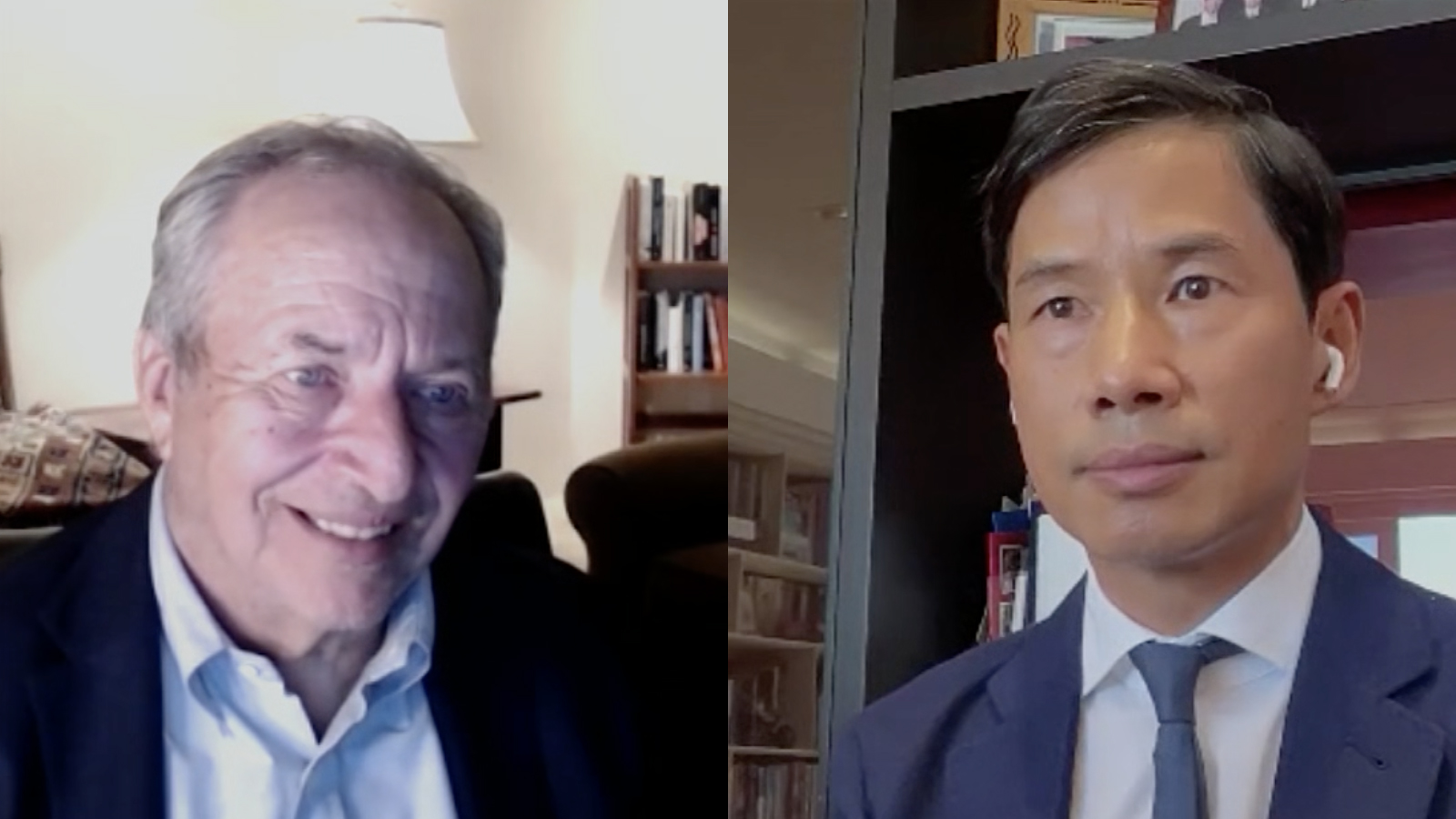06:42

Both China and the U.S. need "substantial new regulations" to deal with issues that tech poses, such as the spread of false information and the impact on young people, said former U.S. Treasury Secretary Larry Summers in a recent episode of CGTN's EconTalk, in response to a question over his views on China's latest regulatory tightening on big techs.
"I feel very strongly that the U.S., we're going to need a new and enhanced regulatory framework for our major tech companies. And I know there are similar feelings in China, and I agree with that," said Summers.
After years of a loose regulatory environment that had in effect nurtured a world-leading tech sector including e-commerce, ride-hailing, fintech and sharing businesses, China has been plugging regulatory loopholes in the past couple of years in order to rein in monopoly and data securities, among other concerns.
As part of the regulatory campaign, China last week unveiled revamped measures of cybersecurity review for data-rich companies seeking overseas initial public offerings and a new regulation on algorithm recommendation services.
The U.S. – during Joe Biden's presidency – has developed a semblance of direction in its efforts to regulate big techs. In July 2021, Biden signed a historic executive order urging its consumer protection agency, the Federal Trade Commission, to keep a keener eye on merger propositions and personal data collection by the big tech platforms.
Tech companies would have to adapt even if they disagree with what the precise content of that regulation should be, Summers noted.
When answered how the precise content of regulations can differ between China and the U.S., Summers said that there's likely to be differences of perspectives, which tend to involve how "values of community" and "values of individuality" are oftentimes given different priorities in the two countries.
China-U.S. tech competition: similarities outnumber dissimilarities
To put tech regulation in the perspective of China-U.S. tech competition, the exchange between Summers and the founder of Primavera Capital Fred Hu then delved into discussing whether China-U.S. tech competition will set the stage for the next phase of competition – a wider one, or worse, decoupling.
U.S. President Joe Biden touted the Senate's passage of the Innovation and Competition Act, a $250-billion bill, in June 2021, which stated the country's goal to outcompete Chinese technology. Five months later, Biden agreed that China and the U.S. need to make sure that competition does not veer into conflict.
Summers and Hu brushed aside the likelihood of decoupling risks taking form for economic reasons, given that the two countries are economically intertwined. But the two guests worried that there are real risks of decoupling as China-U.S. tensions are being "talked up" for domestic political reasons on both sides.
"Both Chinese tech firms and the U.S. ones are being caught in the crosshairs of a deteriorating bilateral relationship," said Fred Hu, adding that putting an investment ban on Chinese tech stocks is cutting off investors' access to benefit from China's growth opportunities. And that delisting decision is also considered by Summers "a lose-lose proposition."
China and the U.S. are having more similarities than dissimilarities in their economic models, unlike what was 40 years ago, said Hu, who believed that both can be called the Keynes-advocated "mixed economy." China and the U.S. can adopt and converge on some of the basic elements of the "mixed economy," he added.
Summers, chiming in, hoped that mutual interests in China-U.S. bilateral ties, including tackling climate change and having a prosperous world in which all are able to trade, would be seen as more important than issues of specific competition.

